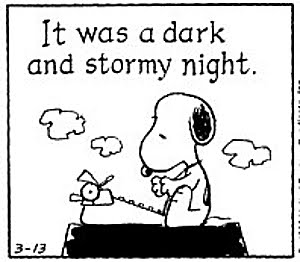Although his criminal exploits were just as extensive and occurred during the same time period as Jack the Ripper, the Arch Fiend--as Holmes was known--has not endured in the public's memory the way the Ripper has. Born with the unfortunate moniker Herman Mudgett in New Hampshire, Holmes began torturing animals as a child. Still, he was a smart boy who later graduated from the University of Michigan with a medical degree. Holmes financed his education with a series of insurance scams whereby he requested coverage for nonexistent people and then presented corpses as the insured. In 1886, Holmes moved to Chicago to work as a pharmacist. A few months later, he bought the pharmacy from the owner's widow after his death. She then mysteriously disappeared. With a new series of cons, Holmes raised enough money to build a giant, elaborate home across from the store. The home, which Holmes called "The Castle," had secret passageways, fake walls, and trapdoors. Some of the rooms were soundproof and connected by pipes to a gas tank in the basement. His bedroom had controls that could fill these rooms with gas. Holmes' basement also contained a lab with equipment used for his dissections. Young women in the area, along with tourists who had come to see the 1893 World's Fair in Chicago, and had rented out rooms in Holmes' castle, suddenly began disappearing. Medical schools purchased many human skeletons from Dr. Holmes during this period but never asked how he obtained the anatomy specimens. Holmes was finally caught after attempting to use another corpse in an insurance scam. He confessed, saying, "I was born with the devil in me. I could not help the fact that I was a murderer, no more than a poet can help the inspiration to sing." Reportedly, authorities discovered the remains of over 200 victims on his property. Devil in the White City, a book about Holmes' murder spree and the World Fair by Erik Larson, was published in 2003.
On this date in 1901, Gary Cooper, the star of High
Noon and other classic Westerns, is born in Helena, Montana.
Cooper appeared in a string of low-budget two-reel
Westerns for the next two years before he finally caught the eye of Sam Goldwyn
of the famous MGM studio. Goldwyn gave him a small role in the popular 1926
movie The Winning of Barbara Worth, which earned Cooper favorable
reviews and bigger roles. Three years later, Cooper won the lead part in a
movie version of the famous Owen Wister western novel The Virginian.
Cooper's laconic, understated style of acting was well suited to portraying the
Virginian, a coolly competent cowboy who avoided trouble when he could but was
quick with a gun when his honor was at stake. Generations of subsequent cowboy
actors, from John Wayne to Clint Eastwood, borrowed many elements of Cooper's
Virginian for their own characters.
The success of The Virginian made Cooper one of
Hollywood's leading male actors. He went on to star in a number of films,
including A Farewell to Arms (1932), Beau Geste (1939), and The
Pride of the Yankees (1942). Cooper never abandoned the genre that began
his career, though, and he continued to appear in successful Westerns like The
Plainsman (1937) and The Westerner (1940). Appropriately, one of
Cooper's last great roles was in a Western that is generally considered a
classic of the genre. In High Noon, Cooper plays an aging town marshal
who faces a showdown with four killers arriving by train at noon. Despite
having honorably served the citizens of the town for years, Cooper's marshal is
unable to convince any of the cowardly townspeople to stand with him as he
confronts the outlaws. As the hands of a loudly ticking wall clock inch towards
high noon, the marshal prepares to fight alone. A profound meditation on the
dangers of social conformity and cowardice, High Noon was also a hugely
entertaining and successful western tale of suspense. Cooper won his second
Academy Award for Best Actor with High Noon (his first had come in 1941
for Sergeant York), confirming his status as one of the most talented
actors in western movies. Cooper was 51 years old when High Noon was
released. During the next decade, he made several other films, though none were
as successful as his earlier works. In 1961, the Motion Picture Academy gave
Cooper a special Academy Award for career achievement. When his friend Jimmy
Stewart rose to accept the award for Cooper, Stewart broke down and revealed
that the actor was seriously ill with cancer. Cooper died shortly after at the
age of 60.



No comments:
Post a Comment